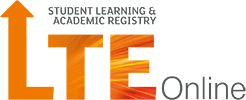In the recent blog ‘Nurturing student creativity and resilience for an uncertain world: some considerations for what comes next’ it was argued that the development of creativity and resilience in our students is not only necessary but essential if they are to thrive in an increasingly unpredictable and complex world. It is for us as educators to decide the role creativity plays within our courses and modules in preparing our students for increasingly uncertain future professional lives.
To this end, the following prompts (considered alongside the 6 Attributes of Creative Learners) are designed to support reflection and inform action and can provide a useful source of data from which to evidence or benchmark current practice, progress, and impact, or to inform planning and/or decision making for future curriculum developments.
- To what extent are you providing regular opportunities for students to develop confidence in their ability to explore and experiment with new ideas, perspectives, and practices in their learning?
- To what extent are you taking steps to provide students with ‘safe’ environments in which to take risks and to initiate work in different situations and settings?
- To what extent are you providing opportunities for students to focus on, practise, and apply their learning in creative ways that reflect and respond to their changing learning needs, motivations, and preferences?
- To what extent are you providing flexibility and choice in the kinds of approaches and work students can engage with and produce throughout your module or course?
- To what extent does your course/module provide students with opportunities to create new and build on existing knowledge and insight in real-world learning situations?
- To what extent does your course/module require students to put forward and showcase their own ideas about and solutions to problems they themselves have researched and defined?
- To what extent does your course/module provide opportunities for students to demonstrate their creativity through assessment of ‘process’, supporting students to draw together and apply their learning throughout a module or course in meaningful ways?
- To what extent is your course/module providing students a variety of opportunities for meaningful and productive collaboration with others (tutors, peers, industry) as part of disciplinary networks and communities of practice?
- To what extent are you modelling for students a ‘respect for others’ and a ‘preparedness to listen’ when requiring them to interact and collaborate with ours?
These reflective questions form an integral part of a new Teesside University LTE Practice Guide resource aimed at supporting curriculum and learning design that Nurtures Creative Learners.
We will be launching this resource as part of a new range of themed LTE Practice Guides (including ‘Developing Excellence in Personal Tutoring’; ‘Promoting and Encouraging Student Engagement’; ‘Flexible Assessment in a Hybrid Model’) on Monday June 15th via LTE Online.
